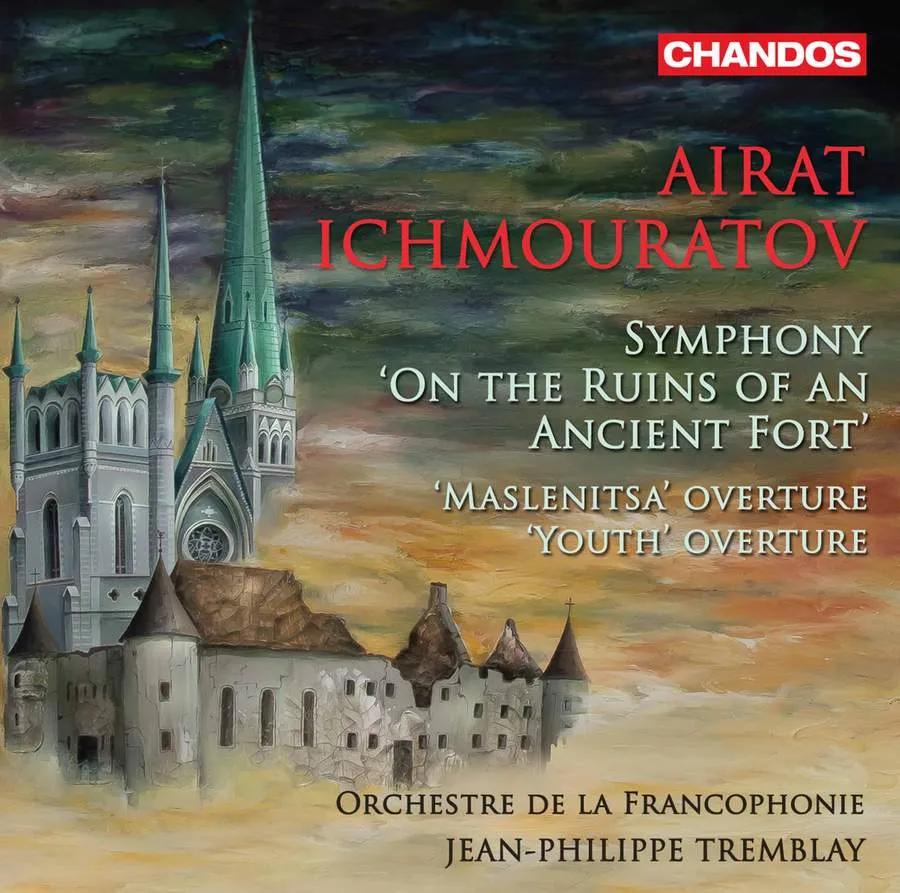
Airat Ichmouratov Symphony 'On the ruins of an Ancient Fort'; Youth Overture; Maslenitsa Overture Orchestre de la Francophonie/Jean-Philippe Tremblay Chandos CHAN 20172 73:07 mins
You could call this ‘light music’, did it not come armour-plated in the sort of reactionary style you might attribute to minor Soviet composers working in the 1950s. It comes as a shock, then, to find that Airat Ichmouratov was born into a Tatar Muslim family in Kazan as late as 1973. Montreal is now his home, Canadian musicians are happy to play his music, and the country’s cultural organisations to promote it – hence the reason for this Chandos release. The ‘Youth’ Overture, once past the portentous opening, has a clarinet theme with engagingly florid turns, a creepy-weird counter-theme and a broad synthetic melody far removed from the sort Prokofiev was so proud of assigning to what he called a new ‘light-serious’ vein from 1936 onwards.
That’s probably the best of it. The ‘Maslenitsa’ Overture, celebrating the Russian shrovetide festival, is all generic stuff, starting with Russian Orthodox chant in the style of Tchaikovsky’s Romeo and Juliet Overture. I had to force myself to listen to the end of the A minor Symphony, more a symphonic tone-poem in four very conventional movements supposedly reflecting the vitality of Longueil on the St Lawrence River from its dodgy foundation – ritual drums begin and end the first movement – of which the ruined fortress is the only indication. The scherzo depicts children at play less successfully than in the ‘Youth Overture’, though the trio-waltz is the symphony’s best shot at a memorable idea; the slow movement is pure sludge, briefly enlivened by a quirky middle section, and the finale ends in the kind of overkill which the late Oliver Knussen found so hilarious in the most bombastic apotheoses of Khachaturian. The playing is good, though the string sound, both collectively and individually, is exposed as rather thin in the symphony.
David Nice